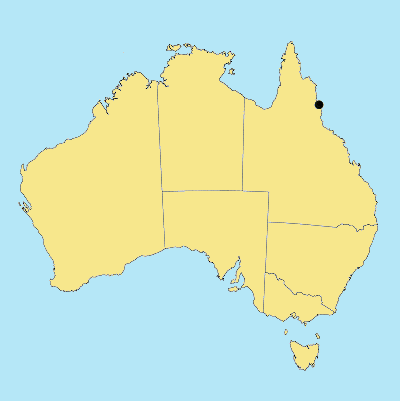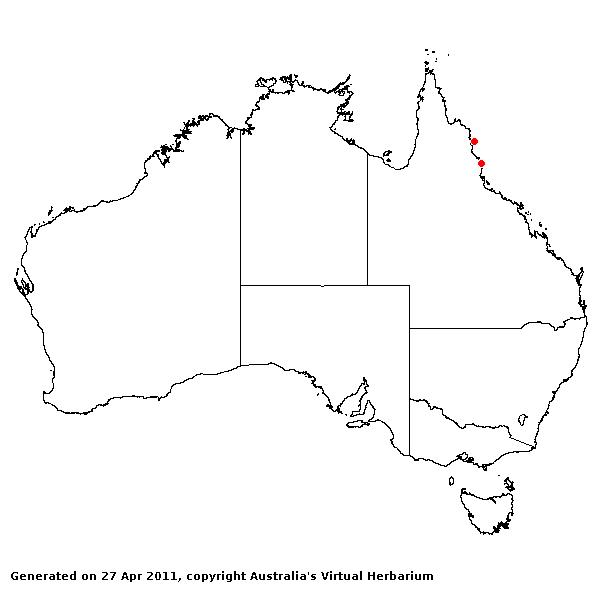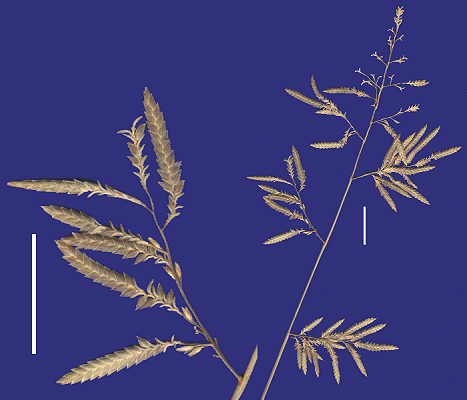Eragrostis subsecunda*
(Lam.) Fourn. Mex. Pl. 2: 118 (1886).
Classification. (GPWG 2001) : Subfamily Chloridoideae. Cynodonteae.
Basionym and/or
Replacement Name: Poa subsecunda
Lam.
Type of Basionym or
Protologue Information: China:
Sonnerat (P holo).
Key references
(books and floras): [2002] D.Sharp & B.K.Simon, AusGrass, Grasses of
Australia.
Habit.
Perennial. Culms erect or decumbent, 22–41 cm tall. Mid-culm nodes glabrous.
Ligule a fringe of hairs, 0.2 mm long. Leaf-blades straight, linear or
lanceolate, flat or involute, 1–15 cm long, 1–3 mm wide.
Inflorescence.
Inflorescence compound, a panicle of racemes. Panicle elliptic, 3–25 cm long.
Spikelets. Spikelets
sessile or pedicelled. Fertile spikelets many flowered, with at least 2 fertile
florets (8–21), comprising 8–21 fertile floret(s), with diminished florets at
the apex, linear or lanceolate or oblong, laterally compressed, 4–9 mm long.
Glumes. Glumes
similar. Lower glume lanceolate, keeled, 1-keeled, 1 -nerved. Upper glume
lanceolate or ovate, 1.5–2.5 mm long, keeled, 1-keeled, 1 -nerved.
Florets.
Fertile lemma 1.8–2.5 mm long, keeled, 3 -nerved. Lemma apex muticous. Anthers
3. Grain 0.5–1 mm long.
Continental
Distribution: Temperate Asia, Tropical Asia, and Australasia.
Australian
Distribution: Queensland.
Queensland: Cook.
Notes.
Distinguishing characters include panicle almost as wide as long, ovate in
outline, with thickened scabrous stiffly spreading branches, and usually
bearded axils; spikelets linear, loosely flowered, with subpersistent thickened
rachilla; glumes and lemmas cartilaginous, deciduous; glumes subequal or the
upper larger, the lower sometimes keelless; palea keels thickened, almost
entirely scaberulous.
Introduced;
occurs in Cairns, N Qld.; native to southern China and
Indo-China to Malesia. Roadsides, town path.; flowers Jan., Mar.; fruits Jan.,
Mar.



